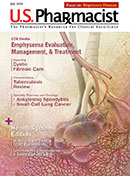Abnormal Heart Sound
The heart consists of two upper chambers (atria) and two lower chambers (ventricles). These chambers allow blood to pump through the heart and into the body’s circulatory system via the pulmonary artery and the aortic artery.
The flow of blood through the chambers and into these arteries is unidirectional and is controlled by the mitral valve, the tricuspid valve, the aortic valve, and the pulmonary valve. These valves, which act as gates to regulate the blood flow in one direction, open to allow blood out of a chamber and close to stop blood from flowing backward.
During a heartbeat, distinct sounds can be heard through a stethoscope that signify the valves opening and closing as blood flows through the heart chambers and out the main arteries. A heart murmur is a sound that is unusual or different from that heard during a normal heartbeat.
A heart murmur may be caused by a problem with a valve or by an increase in the amount of blood that flows through the heart with each beat. If a valve fails to close completely after blood has been pumped out of a chamber, it causes an unusual sound as the blood leaks backward through the valve (regurgitation). The valve may also cause a murmur if it is stiff and fails to open completely (stenosis).
Heart murmur is not a disease, but it can be a sign of disease. A murmur does not cause symptoms or require treatment, but the cause of the murmur may create symptoms and may respond to treatment. Symptoms that may accompany a heart murmur include chest pain, skipped beats, shortness of breath, and fainting. Frequently, a heart murmur is discovered during a routine physical examination or when another symptom brings the patient to a physician.
An Unusual Heart Sound Does Not Necessarily
Indicate a Physical Problem
A heart murmur is an abnormal sound that occurs during a heartbeat cycle. This sound is caused by a turbulent flow of blood through the valves and chambers of the heart with each heartbeat.
Causes of This Condition
Heart murmurs occur for a variety of reasons. Childhood heart murmurs usually are due to a structural defect in the heart that is present at birth, a condition known as congenital heart disease. Adults with newly diagnosed heart murmurs typically have a heart disease or valvular disease that developed during adulthood. The backflow of blood into a heart chamber after a valve fails to close properly is a common cause of heart murmur. A murmur may also occur if a valve is hardened and does not close properly or if the opening of the valve is narrowed. Defects in the wall that divides the chambers of the heart can cause abnormal heart sounds.
A heart murmur may manifest during pregnancy and when a patient has fever, anemia, or thyroid disease. In these cases, the heart works harder to pump blood through the chambers with each beat. Heart murmurs heard during pregnancy often disappear once the baby is born and the mother’s blood volume returns to normal.
Symptoms, Diagnosis, and Treatment
Symptoms of heart disease associated with heart murmurs may include chest pain, skipped heartbeats, shortness of breath, lightheadedness, and a bluish tint to the fingers and lips. Many people with heart murmurs do not have symptoms. The presence of symptoms depends on the type of heart problem causing the murmur and the severity of the problem.
The sound made by a heart murmur, as heard through a stethoscope, is often described as a whooshing or rasping. Murmurs are also graded on a loudness scale, with grade I being the faintest murmur possible and grade VI being the loudest murmur possible. A murmur is also classified according to when during the heartbeat it is heard; it is either systolic (when the heart muscle contracts and pumps blood out of the chambers) or diastolic (when the heart relaxes and the chambers fill with blood).
When a heart murmur is detected, the doctor may order additional tests to discover the cause of the abnormal sound. These tests may include an electrocardiogram (ECG)—which shows the electrical activity of the heart muscle—or an echocardiogram, which uses sound waves to show the structure of the heart and blood flow through the heart as it contracts and relaxes. Once the cause of the murmur is identified, the appropriate treatment can be determined. Treatment may include medications (digoxin, anticoagulants, diuretics, statins, or angiotensin-converting enzyme inhibitors), surgery, or catheterization.
Not all heart murmurs signify a physical problem. Harmless heart murmurs, also referred to as innocent or physiologic murmurs, are quite common, especially in young children. Innocent murmurs are simply the sound of blood being pumped through the heart’s chambers and valves. These murmurs are not caused by an abnormality, and they do not require treatment. In most cases, an innocent murmur eventually disappears on its own.






